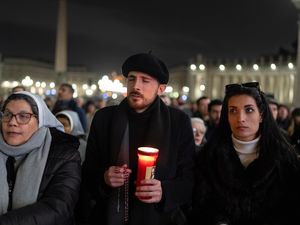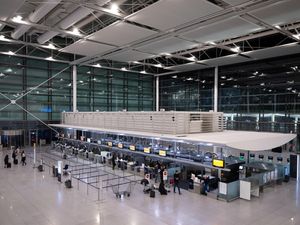Thailand welcomes return of antiquities from New York’s Metropolitan Museum
The objects – a tall bronze figure called the Standing Shiva and a sculpture called Kneeling Female – are thought to be about 1,000 years old.
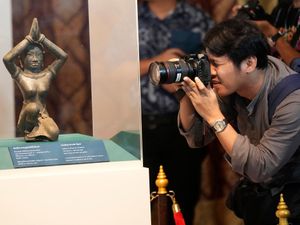
Thailand’s National Museum has hosted a welcome home ceremony for two ancient statues that were allegedly illegally trafficked from Thailand by a British collector of antiquities and were returned from the collection of New York’s Metropolitan Museum of Art.
The objects – a tall bronze figure called the Standing Shiva or the Golden Boy and a smaller sculpture called Kneeling Female – are thought to be around 1,000 years old.
This most recent repatriation of artwork comes as many museums in the US and Europe reckon with collections that contain objects looted from Asia, Africa and other places during centuries of colonialism or in times of upheaval.
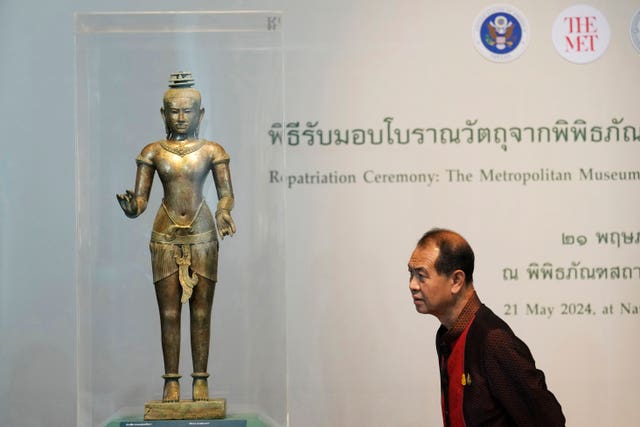
The Metropolitan Museum had announced last December that it would return more than a dozen artefacts to Thailand and Cambodia after they were linked to the late Douglas Latchford, an art dealer and collector accused of running a huge antiquities trafficking network out of South East Asia.
He was indicted in the United States in 2019 for allegedly orchestrating a long-running scheme to sell looted Cambodian antiquities on the international art market.
Mr Latchford, who died the following year, had denied any involvement in smuggling.
Speaking at Tuesday’s ceremony, the Metropolitan’s curator of Asian and Southeast Asian art, John Guy, called the returned works “unrivalled masterpieces“ of their period and said the handover was “a very meaningful moment to recognise the importance of the art of Thailand in world culture”.
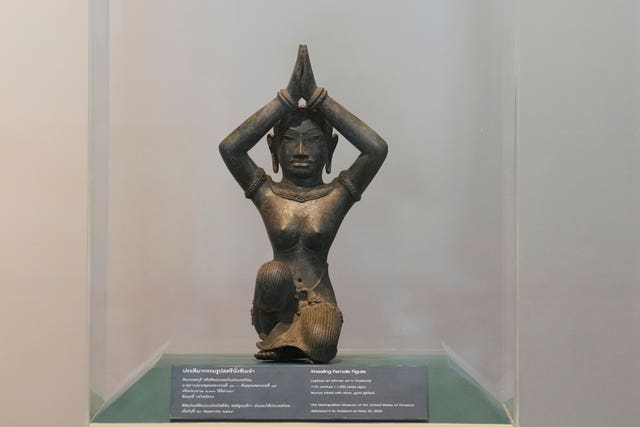
“The Met initiated the return of these two objects after reviewing information and established that the works rightly belonged to the Kingdom of Thailand,” he said.
“This return followed the launch of the Metropolitan’s Cultural Property Initiative last year, an initiative driven by the Met’s commitment to the responsible collecting of antiquities and to the shared stewardship of the world’s cultural heritage,” Mr Guy told his audience in the capital Bangkok.
Thai culture minister Sudawan Wangsuphakijkosol expressed her country’s gratitude for the return of the items.
“These artefacts that Thailand has received from the Met are the national assets of all Thais,” she said.
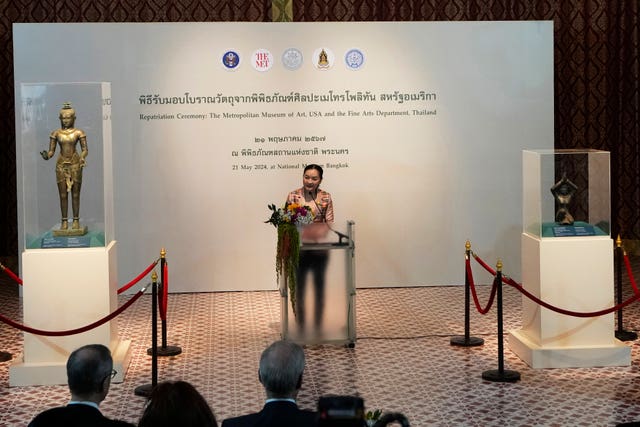
Last month, the Metropolitan Museum signed a memorandum of understanding in New York with Thailand “formalising a shared commitment to collaborate on exchanges of art, expertise, and the display and study of Thai art”.
The statement also explained that the museum had recently tackled the controversial issue of cultural property and how it was obtained.
It said its measures include “a focused review of works in the collection; hiring provenance researchers to join the many researchers and curators already doing this work at the museum; further engaging staff and trustees; and using The Met’s platform to support and contribute to public discourse on this topic”.


